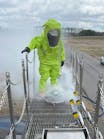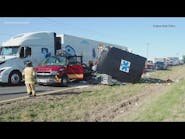I had the honor of being invited to a gathering of fire service researchers from the Center for Fire, Rescue & EMS Health Research in Kansas and Texas A&M Health Science Center who have focused much of their energy and talents on addressing the behavioral health needs of firefighters throughout America. I also joined fire service leaders from Chicago, Kansas City, KS, and Worcester, MA, along with some of the preeminent research minds in the world on firefighter health, wellness and safety issues. This gathering was to review where we have been with fire service behavioral health knowledge and needs and where the road is leading us.
According to American Addiction Centers, the prevalence of posttraumatic stress disorder (PTSD) in firefighters may range from 7 to 37 percent. Our service has long known that the environment that we are exposed to oftentimes inherently has stressors and chaotic challenges that exert a toll on many of us.
Our own research in Broward County, FL, conducted in partnership with Nova Southeastern University School Psychology Studies, has demonstrated elevated rates of self-reported stress, sleep disturbances and alcohol abuse among other poor-coping mechanisms compared to the general population and other professions. These are not surprising findings given the effects of chronic repetitive stressors that firefighters face. The American Fire Service has identified the importance of addressing behavioral health through programs identified by the IAFC, the IAFF's Wellness & Fitness Initiative, NFPA 1500 and the NFFF's Life Safety Initiative 13—Psychological Support.
Emergency programs with the NFFF have evolved into the Stress First Aid model, which has a recommended protocol for occupational stress exposure. Other incorporated elements into its recommended protocol include determination of potentially traumatic events, a subsequent time out and hot wash, trauma screening questionnaires utilized to assess post-event wellness for those firefighters requiring further intervention and a behavioral clinician intervention when appropriate. Perhaps the most exciting evolution on the horizon for fire service behavioral health support is the national randomized trial underway, funded by FEMA, to validate the effectiveness of this tool with a cross section of American fire departments. The key to offering effective support is not only having adequate tools in the tool box, but ones that have been rigorously validated to be effective in assisting our firefighters!






